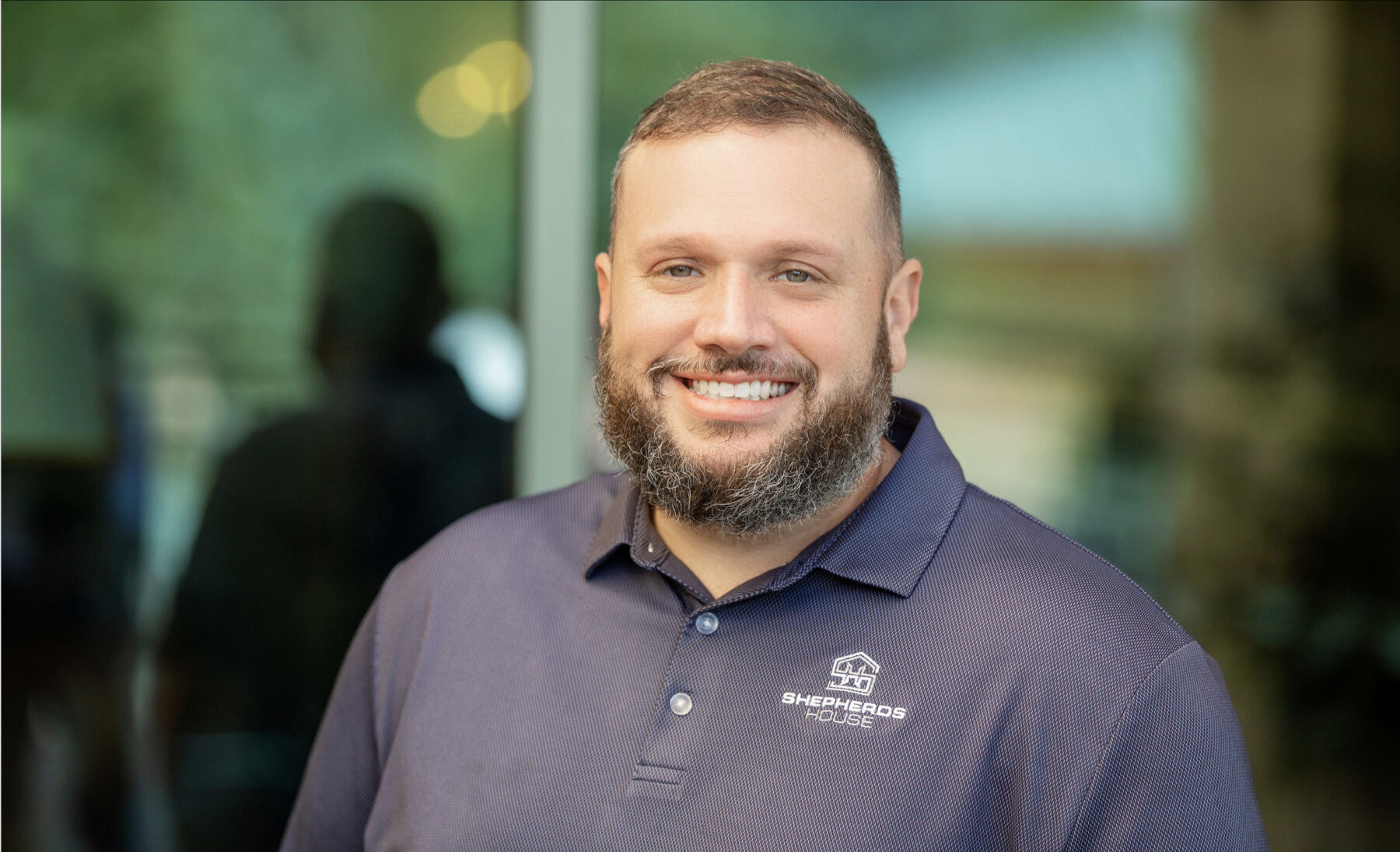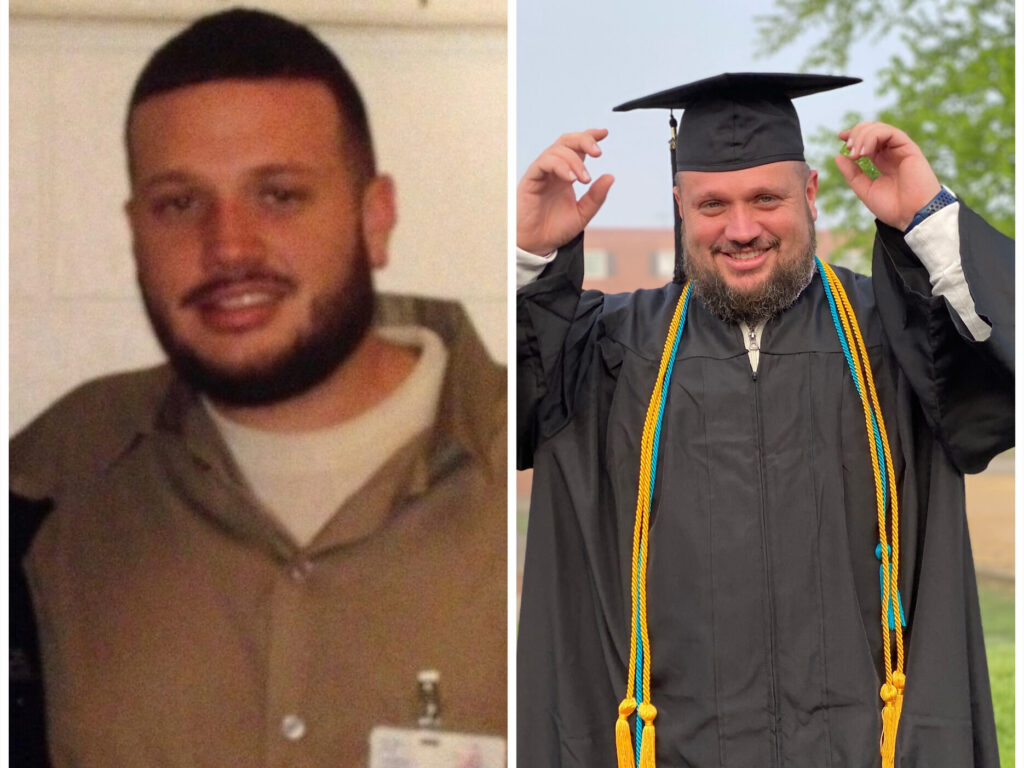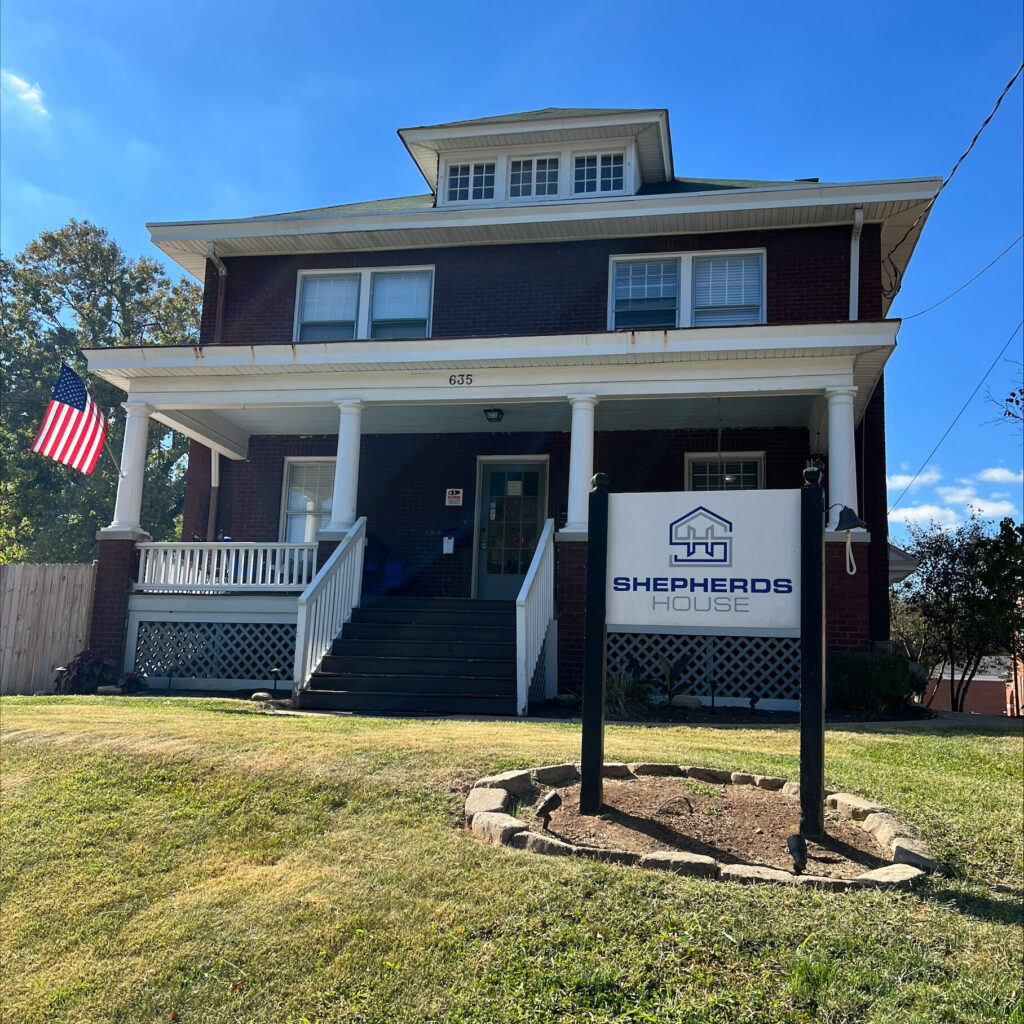Shepherd’s House is leading the way in individualized addiction treatment

“If you can just get a job and a little apartment and see your kids on weekends, your life will be great. That’s all I wanted,” says Roger Fox, recalling his outlook on life from the confines of a prison cell in 2014. Much has changed since then. Today, Fox is vice president of community-based programs at Shepherd’s House – the addiction recovery nonprofit that helped him transform his life after prison, and that inspired him to dedicate his life to helping others do the same.
Fox’s path to addiction started when he was 12-years-old. By the time he was in high school, the Kentucky native was using cocaine and opioids on a regular basis. When Fox graduated in 2003, his grandparents offered to pay for his degree in graphic design, but the grips of addiction pulled him in a different direction. He spent the next eight years battling substance abuse, sometimes homeless, often unemployed.
On April 7, 2014, rock bottom finally arrived. His mother had him arrested after he broke into her house. Fox would spend the next 13 months in jail, which he says was the best thing that could have happened to him at that point in his life.
Fox decided to participate in an in-prison rehabilitation program, where he met a man named Brian. The two became fast friends and allies, both having faced the same challenges of addiction. Fox contacted Brian when his family refused his request to move in after his release. Brian told him to meet him at Shepherd’s House. He never left.

Fox knows he was fortunate to have found the organization. Over 106,000 people died of overdoses in 2021, with an estimated 20 million Americans struggling with substance today. For those who seek help, many say they find programs that are largely one-size-fits-all, failing to take into account the unique circumstances people are facing in their own lives. The result is a status quo that addresses the symptoms of addiction rather than its root causes.
When Fox got to Shepherd’s House, he found something very different. Since 1985, the Kentucky-based nonprofit has helped thousands of people live a sober and meaningful life through an individualized approach to addiction recovery.
Fox was hooked – this time on hope and opportunity he’d been searching for and hadn’t found.

Shepherd’s House rehabilitation efforts
While there are many reasons behind substance abuse, a lack of meaning and support system are two commonly cited factors. Shepherd’s House was created to address these issues by helping people in recovery gain meaningful employment and providing a state-wide network that enrollees can depend on.
According to Fox, Shepherd’s House programming focuses on four pillars:
- Home. Shepherd’s House operates numerous buildings across Kentucky with living accommodations for both men and women. The organization has 200 beds in detention centers across Kentucky. Like Fox, many former inmates are turned away by family members. Shepherd’s House provides housing so that enrollees can support one another in group environments, and which holds them accountable for their daily meetings, therapy, and peer support sessions.
- Health. Shepherd’s House offers 12-Step programs, individualized therapy, wellness programs, and access to clinical interventions and formal aftercare. The entire program is built on the principle that a sound body and mind developed in a group environment will help reduce recidivism and provide meaning for each participant.
- Community. Fox was immediately embraced by Shepherd’s House community the first day he arrived, which he attributes to his successful recovery. Recovery Housing is a 12-18 month residential program that features peer support, group therapy, daily meetings, and recreational activities. As Fox says, “If we can provide community and let people build connections, that goes a long way and helps increase their chances of success.”
- Purpose. Fox notes that community and purpose go hand-in-hand, though a big component of finding meaning is through employment. By empowering each individual with the attention and therapy they need to rehabilitate themselves, which includes access to daily activities, classes, and counseling sessions, the ultimate goal is to help them discover a sense of purpose in their lives.
Leading the way in individualized addiction treatment
Every Shepherd’s House program is tailored to meet individual needs — a much different approach than many recovery programs. Some enrollees require cognitive behavioral therapy; others get a lot from extensive wellness programs. Case managers are on staff to provide support. In fact, 90% of the organization’s staff are in recovery, and 50% are graduates of Shepherd’s House programs. They’re able to provide empathic and holistic assistance.
Shepherd’s House also offers job search and vocational assistance. The organization has partnered with a number of regional businesses, which often seek out help from Shepherd’s House enrollees. Fox says people in recovery pour their hearts into whatever career path they choose. He continues,
“A lot of employers know that when you get a Shepherd’s House client, it’s going to be somebody that shows up every day, that’s going to work hard, and that will probably outperform other employees.”
Shepherd’s House also offers a six-month “Learning to Live Life” outpatient program that enrollees join in lieu of a prison sentence. While Fox remains glad that he was sentenced, he laughs when explaining a reversal of circumstances in the Kentucky court system, which often calls him to sit in on trials.
“Sometimes the county attorney will have one opinion on a person and the public defender will have another opinion. Then the judge will turn to me and say, ‘Roger, what do you think we should do with this person?’ And I’ll say, ‘Judge, I think we should do this,’ and he’ll go with it. Nine years ago they put me in prison. Today, they’re listening to me for advice on how to treat people with substance use. Now they pour into me just the same way that I try to pour back into the community.”
Shepherd’s House is supported by Stand Together Foundation, which partners with the nation’s most transformative nonprofits to break the cycle of poverty.
Learn more about Stand Together’s health care reform efforts.

